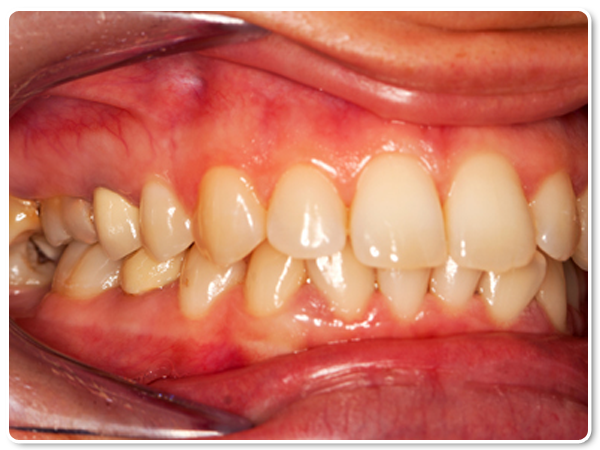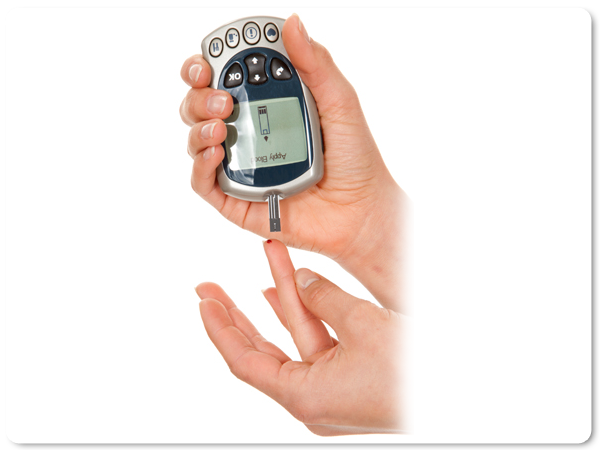Diabetes and Oral Health
What is periodontal disease?

Periodontal (gum) disease may result from gingivitis, an inflammation of the gums usually caused by the presence of bacteria in plaque. Plaque is the sticky film that accumulates on teeth both above and below the gum line. Without regular dental checkups, periodontal disease may result if gingivitis is left untreated. It also can cause inflammation and destruction of tissues surrounding and supporting teeth, gums (gingiva), bone, and fibers that hold the gums to the teeth. A number of factors increase the probability of developing periodontal disease, including diabetes, smoking, poor oral hygiene, diet, and genetic makeup; and it is the primary cause of tooth loss in adults.
How are periodontal disease and diabetes related?

It is estimated that 12 to 14 million people, or one-third of the population in the United States, have diabetes, but only one-half of these individuals are diagnosed.
Studies have shown that diabetics are more susceptible to the development of oral infections and periodontal disease than those who do not have diabetes. Oral infections tend to be more severe in diabetic patients than in nondiabetic patients. And, diabetics who do not have good control over their blood sugar levels tend to have more oral health problems. These infections occur more often after puberty and in aging patients.
What types of problems could I experience?
Diabetics may experience diminished salivary flow and a burning mouth or tongue. A dry mouth (xerostomia) also may develop, causing an increased incidence of decay. Gum recession has been found to occur more frequently and more extensively in moderate- and poorly-controlled diabetic patients because plaque responds differently, creating more harmful proteins in -9the gums. To prevent problems with bacterial infections in the mouth, your dentist may prescribe antibiotics, medicated mouth rinses, and more frequent cleanings.
How can I stay healthy?
Make sure to take extra good care of your mouth and have dental infections treated immediately. Diabetics who receive good dental care and have good insulin control typically have a better chance at avoiding gum disease.
Diet and exercise may be the most important changes that diabetics can make to improve their quality of life and their oral health. Diabetic patients should be sure both their medical and dental care providers are aware of their medical history and periodontal status. To keep teeth and gums strong, diabetic patients should be aware of their blood sugar levels in addition to having their triglycerides and cholesterol levels checked on a regular basis. These may have a direct correlation to your chances of obtaining periodontal disease.
What is the best time to receive dental care?
If your blood sugar is not under control, talk with both your dentist and physician about receiving elective dental care. Dental procedures should be as short and as stress-free as possible. Also, make morning appointments because blood glucose levels tend to be under better control at this time of day.
If you have a scheduled appointment, eat and take your medications as directed. See your dentist on a regular basis, keep him or her informed of your health status, and keep your mouth in good health.











 My husband and I love Prestonwood Dental. I already wrote a review for Dr. Daftary, and realized I should write one for her practice as well, because she and her entire team are brilliant
My husband and I love Prestonwood Dental. I already wrote a review for Dr. Daftary, and realized I should write one for her practice as well, because she and her entire team are brilliant




